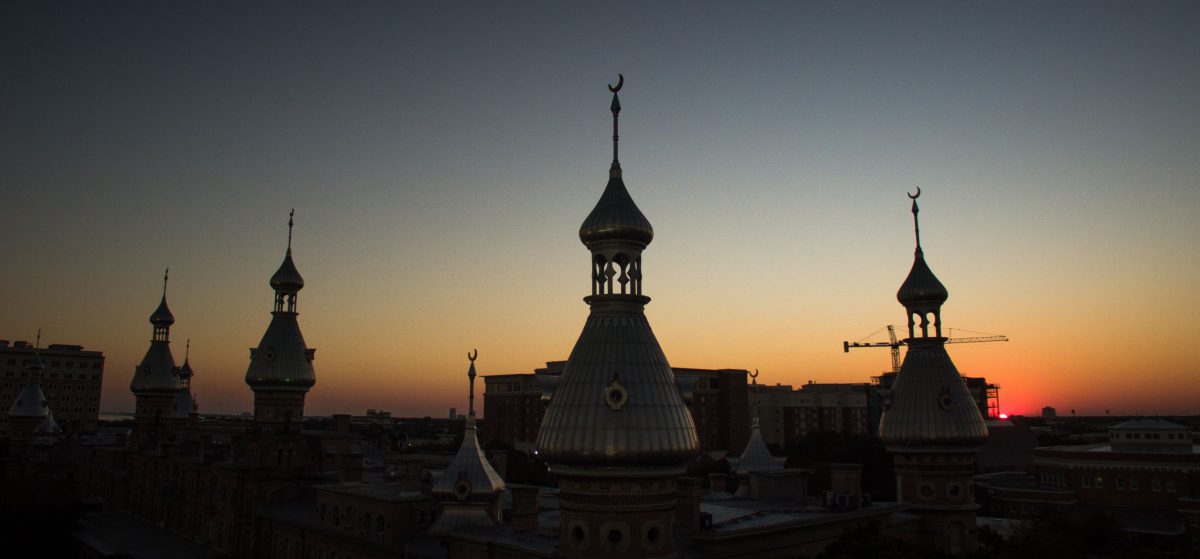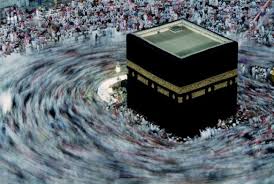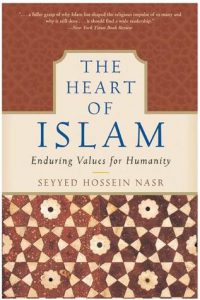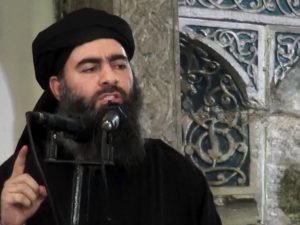Religion
Is it Wrong to Blame Islam?
During his 2015 speech at a Boston mosque, U.S. President Barack Obama said: “And we can’t suggest that Islam itself is at the root of the problem. That betrays our values.”

Jihadi terrorists claim to act on the authority of Islam. Could they be right? Some very influential people seem to think that it is morally wrong even to consider this hypothesis. During his 2015 speech at a Boston mosque, U.S. President Barack Obama said: “And we can’t suggest that Islam itself is at the root of the problem. That betrays our values.” Unfortunately, our values don’t guarantee that major religions are necessarily free of destructive ideas any more than major political ideologies are. When a religious apologist argues that his religion is good, he concedes that religions can be evaluated. Most people, if they heard credible stories of Muslim converts cleaning up their lives, or reports that Muhammad was a tolerant man, would think that this was evidence that Islam is a force for good. If so, then the evidence could turn out to support the opposite claim.
The Warrior-Prophet of Islam
Muhammad, who was a warrior as well a prophet, declined to disguise his religious intolerance. In his “farewell sermon” in 632 C.E., he said: “The earth belongs to Allah and His Messenger. Until people say, “There is no god but Allah,” and accept me as His Messenger, I have been commanded to struggle and fight with them.” Ayatollah Khomeini and Osama bin Laden echoed these words to justify their actions. On his deathbed, Muhammad also reported to have said: “Two religions will not live together in the land of the Arabs.” These words would be out of place an interfaith potluck, to say the least. And note that Muhammad spoke them after his pagan enemies had been vanquished.
In Islamic Imperialism: A History, Efraim Karsh observes that “Whereas Jesus spoke of the Kingdom of God, Muhammad used God’s name to build an earthly kingdom.” This culminated in the conquest of Mecca in 630 C.E., which occurred three years into a ten-year truce. After Muhammad’s army entered the city in a surprise attack, the Meccans looked on helplessly as Muhammad and his companions destroyed the pagan idols and icons in the black building known as the Ka’aba (“cube”) – now the most sacred site in Islam – forever ending of their way of life. Pre-Islamic Mecca was religiously pluralistic, but ever after Muhammad’s conquest and “cleansing” of the Ka’aba there would be only one religion, Islam.

Apologists claim that whatever violence Muhammad employed was legitimate self-defense. An inter-tribal revenge murder was supposed to have constituted a violation of the truce with the Meccans, justifying the conquest of Mecca. Two years earlier, the Jewish community living at the oasis of Khaibar allegedly entered into an alliance with Muhammad’s enemies, providing a pretext for the Muslims to attack them. After their defeat, the Khaibarites were made to pay fifty percent of their produce in tribute to their Muslim masters for the privilege of living on the oasis. Umar, the second caliph, nevertheless expelled them several years later on the grounds that they were causing mischief.
It would be interesting to hear the Meccan or Khaibarite side of the story. Since we don’t have their accounts, I will note on their behalf that it is a strange set of circumstances in which self-defense necessitates conquering a city, destroying religious artifacts, declaring your religion to be the only one allowed, and extracting exorbitant amounts of tribute from weaker populations. The fact that Muhammad’s immediate successors conquered huge swathes of territory does nothing to quell my suspicions that his actions may not have been defensive manoeuvers.
You might think: why should that matter? That was a long time ago! It matters because Muhammad’s life is normative for Muslims. The shahada, or Muslim profession of faith, is “There is no God but God and Muhammad is His messenger.” Muhammad is the messenger not only because it is through him that the Qur’an was revealed, but also because his life is an example. That is why tremendous efforts were invested in collecting and sorting the Hadiths, reports about Muhammad’s life, in the Sunni tradition. If Muhammad was intolerant and aggressive, then there are good grounds for saying that you, as a Muslim, should be as well.
Islam as Totalitarian
You might wonder why the Islamic calendar begins with the Hijrah, or migration of Muslims from Mecca to Medina rather than, say, Muhammad’s birthday, or the “Night of Power” when revelation to Muhammad supposedly began. The answer is that the Hijrah brought into being the Islamic community, or “Umma” wherein spiritual and temporal authority were melded. An Al Jazeera column notes that “the Hadith about the death penalty is not about apostasy in the strict sense of no longer believing in Islam per se. Rather, it is about what can be considered in modern terms political treason.” Apostasy is treason only if the church is the state.
In Destiny Disrupted: A History of the World Through Islamic Eyes, the secular Afghan-American writer Tamim Ansary says:
It is, however, problematically misleading to think of Islam as one item in a class whose other items are Christianity, Judaism, Hinduism, Buddhism, etc. Not inaccurate, of course: Islam is a religion, like those others…. But Islam might just as validly be considered one item in a class whose other items include communism, parliamentary democracy, fascism, and the like, because Islam is a social project like those others, an idea for how politics and economy ought to be managed, a complete system of civil and criminal law.
If you want a second opinion, consider the view of Seyyed Hossein Nasr, who is an emeritus professor of Islamic studies at George Washington University, the author of over fifty books, and the first non-Western scholar to deliver the prestigious the Gifford lectures. After the September 11, 2001 terrorist attacks, HarperCollins commissioned a book by Nasr to, in the words of Library Journal, “cut through misinformation and give American readers a clear sense of just what Islam is and what it isn’t.” The resulting book is The Heart of Islam: Enduring Values for Humanity.

Despite some lip service to liberal ideals, Nasr makes it abundantly clear that these enduring values don’t allow for any church-state separation. He writes: “Technically speaking, the Islamic idea is that of a nomocracy, that is rule of Divine Law.” Nomocracy is not theocracy, he says, because there will be no ruling religious class. But who will determine what the Divine Law is? Who will enforce it? Here are a few more of his many remarks to the same effect (all emphasis mine):
“There is no doubt that Islam meant to create a community based on justice, one in which the pursuit of Divine Law was made possible, not just injunctions for private behavior.”
“Since God is the creator of all things, there is no legitimate domain of life to which His will or His Laws do not apply.”
“In the Islamic perspective, Divine Law is to be implemented to regulate society and the actions of its members rather than society dictating what laws should be.”
Thus government must be of Allah, by Allah, for Allah. We tend to think of totalitarian ideologies as a modern, and especially twentieth century, phenomenon. But a “complete system” must reign supreme wherever it exists. That means, to modify Mussolini’s distillation of fascism, “Everything within Islam, nothing outside of Islam, nothing against Islam.” Remember that Nasr purports to give his readers the most basic and general truths about Islam – the very heart of Islam – not some narrow interpretation of it. He is as qualified as anyone to do so.
In a recent column, Muslim reformer Maajid Nawaz admonishes us to distinguish between Islam and Islamism, which is “a political ideology that seeks to impose any version of Islam over society.” If Islam is a total system like Ansary, Nasr, and many others believe, however, then this is like distinguishing between fascism and “fascismism,” the belief that fascism should be imposed on society. Both Islam and fascism contain within them the idea that they are to be imposed on society, so “Islamism,” and “political Islam” are redundancies.
Nawaz will say that this view of Islam is wrong. But it’s noteworthy that Nasr refers to himself as a traditionalist, while Nawaz refers to himself as a reformer. This suggests that, although Nawaz says that Islamists are perverting Islam, it is his tolerant version of Islam, not Nasr’s totalitarian version, that is revisionist. Although I respect Nawaz for his opposition to totalitarianism, the fact that all four of the major schools of Sunni Islamic law concern themselves with matters of state – to say nothing of Muhammad’s life – suggests that he is fighting an uphill interpretive battle.
It’s probably best to interpret Nawaz’s Islam-Islamism distinction as being aspirational. Islam as Nawaz would like it to be is not a total system. But Islam as it is now is not as he would like it to be, hence the need for reform. I do not deny that Islam can be reformed, but I insist upon not speaking as if the reform has already taken place. The fact that Islam has the potential to become tolerant and non-violent doesn’t entail that it is actually tolerant and non-violent any more than the fact that a guilty man could repent entails that he has repented.

Islam and Terrorism
Muslim fanatics are responsible for a wildly a disproportionate number of terrorism fatalities. According to the 2016 Global Terrorism Index, all of the deadliest four terrorist organizations in the world in 2015 were jihadist organizations: Boko Haram, Islamic State, the Taliban and al Qaeda. Together, these organizations killed 17,741 people in 2015, accounting for 74 percent of all terrorism deaths that year. And note that these activities of these four organizations hardly exhaust all of the jihadi terrorism on earth that year.
Even attempts to downplay the connection between Islam and terrorism inadvertently do the opposite. A case in point is a widely-publicized report by New America alleging that American right-wing extremists are responsible for more recent terrorism deaths of Americans than jihadists. This claim has been criticized, not least because it begins the kill count after 9/11 and doesn’t factor thwarted attacks into the risk assessment. Another point is that Muslims make up only 1 percent of the American population, and yet jihadism manages to be the only form of religious fanaticism that competes with all right-wing terrorism in the U.S for the coveted title of “greatest domestic threat.”
A substantial minority of Muslims admit that they support terrorist organizations. A 2013 Pew Research Center report of global Muslim attitudes shows that the median “favorable” ratings of 11 Islamic publics for al Qaeda, the Taliban, Hamas, and Hezbollah, are 13, 13, 32 and 26, respectively. A more recent study shows several Muslim countries with “favorable” ratings for ISIS hovering around 10 percent with much larger percentages (including a staggering 62 percent of Pakistanis) saying they “don’t know” how they feel about ISIS. Keep in mind that 10 percent of the world’s Muslims is 180 million people.
These figures don’t include data from Saudi Arabia, Somalia, Libya or Yemen, where you’d expect to find rampant extremism. They don’t tell us what percentage of Muslims support at least one terrorist organization, either. Are the 13 percent who support the Taliban and the 13 percent who support al Qaeda the same people? Given that Hamas is Sunni whereas Hezbollah is Shiite, it’s unlikely the 26 percent who support Hezbollah are all included within the 32 percent who support Hamas. So the Pew figures likely understate the extent of Muslim support for terrorism.
Most Muslims are not terrorism supporters, but that is not surprising. Revulsion to terrorism is expected from non-psychopaths. The Muslims who reject terrorism would almost certainly have done so had they been raised in any other major religion. What needs to be explained is why such large minorities of Muslims do support terrorism. One hypothesis is that Islam makes terrorism easier to justify. I have argued that Islam is a total system. Total systems lack ethical constraints on how power is to be achieved. If that is right, then Islam plausibly justifies terrorism that will make Islam feared and dominant.
Many versus of the Qur’an seem to corroborate this. For example, 9:5 begins: “And when the sacred months have passed, then kill the polytheists wherever you find them and capture them and besiege them and sit in wait for them at every place of ambush.” Defenders of the faith complain that critics usually only cite the first half of the verse. The rest is: “But if they should repent, establish prayer, and give zakah [religious alms], let them [go] on their way. Indeed, Allah is Forgiving and Merciful.” How reassuring is this, though? It declares that peace is contingent upon the polytheists changing their religious practices.
The hypothesis that Islam provides an ideological justification for terrorism fares better than the favored alternative, the so-called “blowback” theory, according to which jihadism is a reaction against Western meddling. The blowback theory doesn’t explain why so much jihadi terrorism is directed at subordinated minorities like the Coptic and Pakistani Christians, and against countries like the Philippines, Nigeria, and Belgium, which have never been imperial powers in the Middle East. It also can’t explain why other groups who are under foreign occupation, such as the Okinawan Japanese, do not engage in terrorism.

My hypothesis, but not the blowback hypothesis, predicts the results of a 2016 study which identified religious zeal, not economic desperation, as the primary motive for ISIS recruits. High profile terrorist leaders with extensive Islamic education provide another data point. Abu Bakr al Baghdadi, the self-proclaimed ISIS caliph, is believed to have a doctorate-level Islamic education, though sources disagree on the institution. Omar Abdel-Rahman, the “Blind Sheikh” who masterminded the 1993 World Trade Center attack, held a doctorate in Qur’anic interpretation from al Azhar University in Cairo. Encyclopedia Britannica identifies al Azhar as the “chief centre of Islamic and Arabic learning in the world.”
Conclusion
When jihadists carry out attacks on innocent people, often sacrificing themselves in the process, we should not assume that they are misunderstanding the religion that they are willing to die for. I have argued that they are not. True or not, should this be said aloud? There is a tendency for people discussing this issue to slide between epistemology and pragmatics, i.e., between what is true and what is supposedly prudent or moral to say. According to Obama, identifying Islam as problematic “alienates Muslims.” Fareed Zakaria said something similar during his recent appearance on Sam Harris’s podcast. That may be true, but denying that there is any problem alienates reformers and apostates. Moreover, political criticism may well alienate our political opponents. Indeed, it may even inadvertently provoke extremists on our own side to act violently against them. Few think that this establishes an obligation to abstain from harsh political criticism.
I believe the situation with Islam is analogous. In the long run, the common good is rarely served by refusing to address serious questions, however painful they may be.






